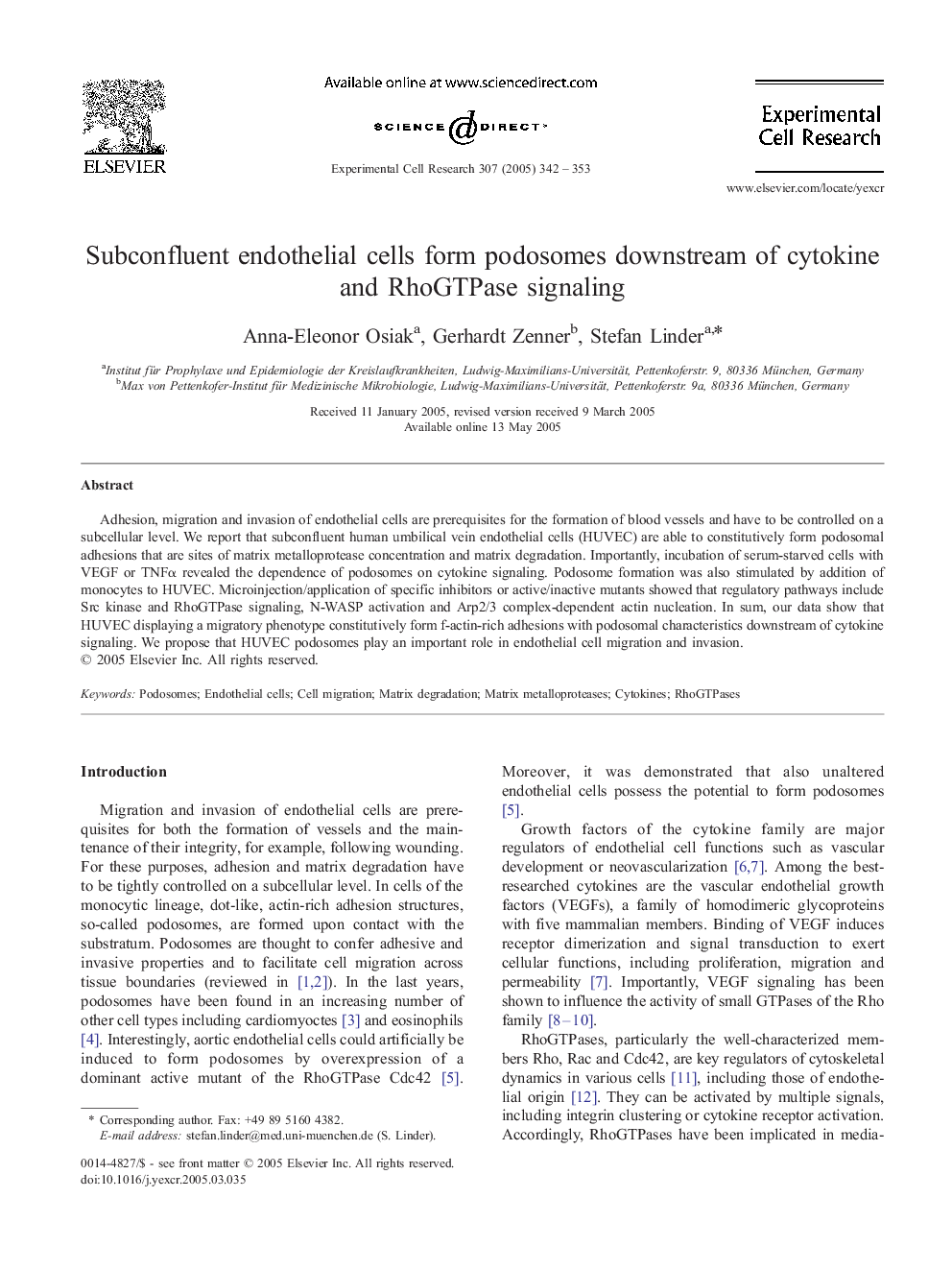| Article ID | Journal | Published Year | Pages | File Type |
|---|---|---|---|---|
| 10904968 | Experimental Cell Research | 2005 | 12 Pages |
Abstract
Adhesion, migration and invasion of endothelial cells are prerequisites for the formation of blood vessels and have to be controlled on a subcellular level. We report that subconfluent human umbilical vein endothelial cells (HUVEC) are able to constitutively form podosomal adhesions that are sites of matrix metalloprotease concentration and matrix degradation. Importantly, incubation of serum-starved cells with VEGF or TNFα revealed the dependence of podosomes on cytokine signaling. Podosome formation was also stimulated by addition of monocytes to HUVEC. Microinjection/application of specific inhibitors or active/inactive mutants showed that regulatory pathways include Src kinase and RhoGTPase signaling, N-WASP activation and Arp2/3 complex-dependent actin nucleation. In sum, our data show that HUVEC displaying a migratory phenotype constitutively form f-actin-rich adhesions with podosomal characteristics downstream of cytokine signaling. We propose that HUVEC podosomes play an important role in endothelial cell migration and invasion.
Keywords
Related Topics
Life Sciences
Biochemistry, Genetics and Molecular Biology
Cancer Research
Authors
Anna-Eleonor Osiak, Gerhardt Zenner, Stefan Linder,
